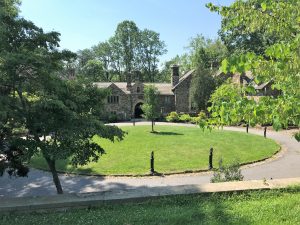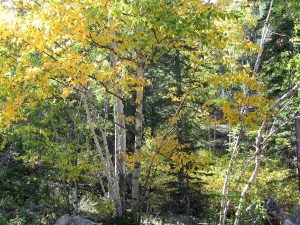God, you are my God; I eagerly seek you. I thirst for you; my body faints for you in a land that is dry, desolate, and without water (63:1 CSB).
David wrote this psalm when he was in the desert of Judah. This probably refers to the time of his flight from his son Absalom (cf. 2 Samuel 15-17). This was a time of great sorrow and deprivation for David. His emotions were stretched to the limit, and we can see him making some unwise choices and saying harmful things, as well as acting godly. All of us are a strange, even weird mixture of grace and sin. Let’s not be too critical of David and remember our own weaknesses. David became a temporary exile from the center of law covenant worship in Jerusalem. Being away from worship is a burden for those who love the Lord (cf. Psalms 42-43). Adding to David’s grief was the knowledge that all this came as discipline from the Lord for his sins connected with Bathsheba (cf. 2 Samuel 12:9-12).
During this situation, David wrote this psalm to record what he learned about the relationship between the covenant Lord and his people. He learned that believers can sing even when they are in desert places, because the thirsting soul finds satisfaction in God. This ought to encourage us all, since our lives have many such times, even prolonged seasons of drought. We do not need to wait until we arrive at a spiritual high to experience God. We can know him in deep trials and when troubles multiply. I have recently seen a dear brother and sister in Christ go through such a time; indeed, they are not out of it yet. But it is stirring to see them rejoice in the Lord. Think of three others who experienced God in the desert—Hagar, Moses, and Elijah.
This psalm is intensely personal. Sixteen times David spoke about his relationship with the living God. His friendship with God was far from the ritualistic or legalistic performance mentality of many religious people. God can be known personally. We can experience his personal activity in our lives. We can know his presence when we are separated from the “sanctuary” (tabernacle or temple in the old covenant and the local gathering of Christ’s people in the new covenant age). It is good to gather with the godly, but it is refreshing to know that he remains with us when we cannot.
From ancient times, this psalm has been known as “the morning psalm of the church” (Leupold). This was due to the translation of “early” instead of “eagerly” or “earnestly” (NIV). “Chrysostom testifies ‘That it was decreed and ordained by the primitive Fathers, that no day should pass without the public singing of this psalm’” (Perowne). While this might not fit with our modern lifestyle and worship, it can be a useful nudge to induce us to refer to it more frequently. The passionate language will help us leave behind the coldness of our disappointments to be warmed in the experience of God’s greatness and love for us. We will learn about how to talk to the God we love.
The psalm can be simply outlined as followed: the believer’s desire of God (63:1), the believer’s experience (63:2-8), and the believer’s security (63:9-11). We want to think about these ideas. What do you do when you are in a desert place? What do you know of God in such circumstances? How can you relate to God in such times? Are you in a desert place now? Please open your Bible and listen with your heart to this song written by a man that knew the misery of desert places.
Grace and peace, David

 Genesis 44:1-45:3
Genesis 44:1-45:3 Psalm 12
Psalm 12